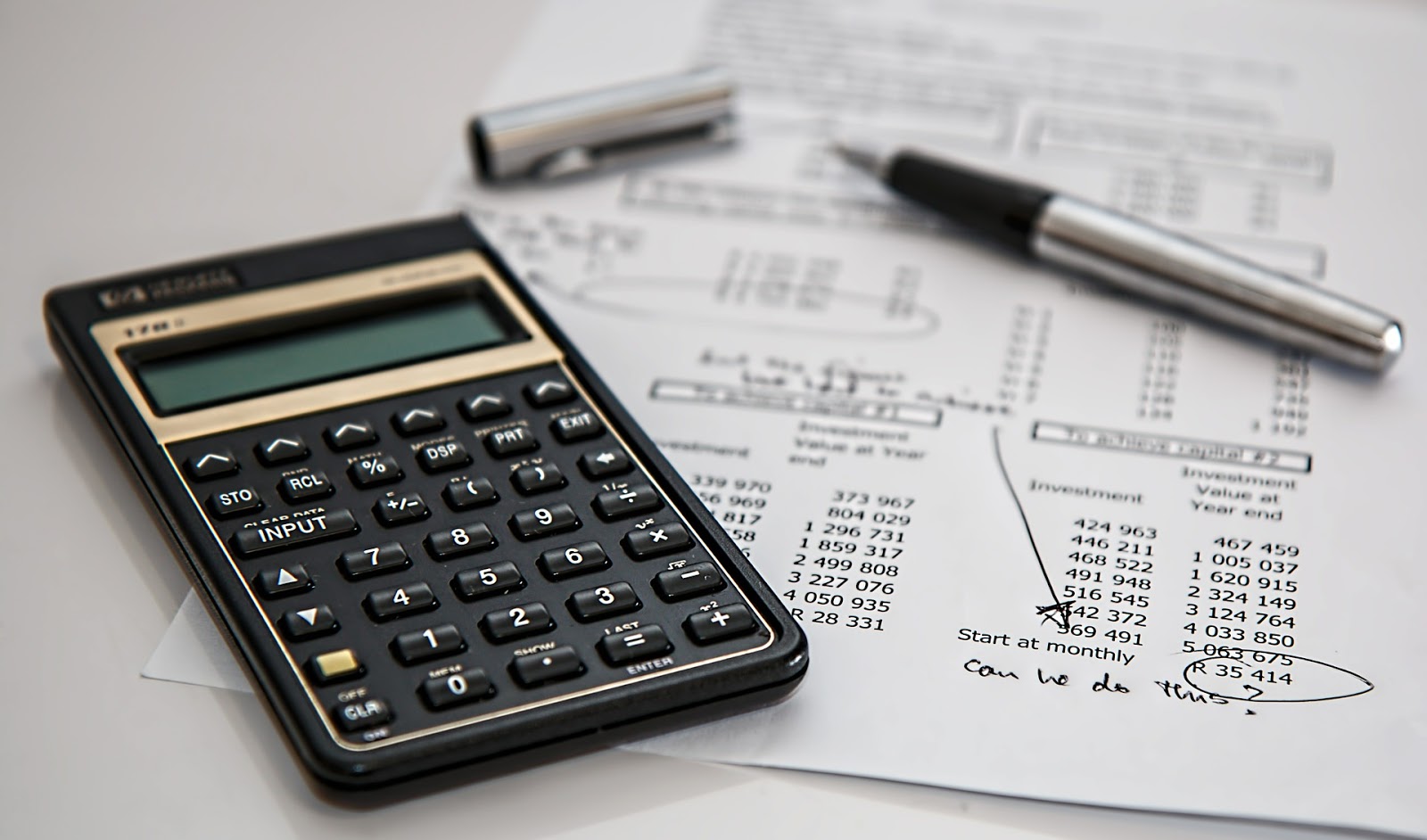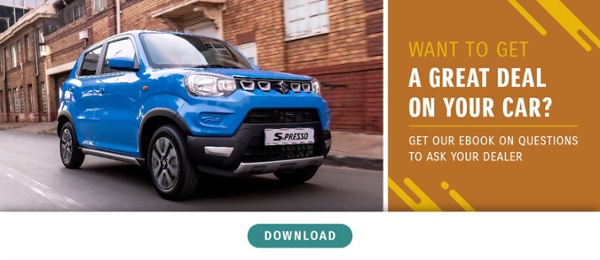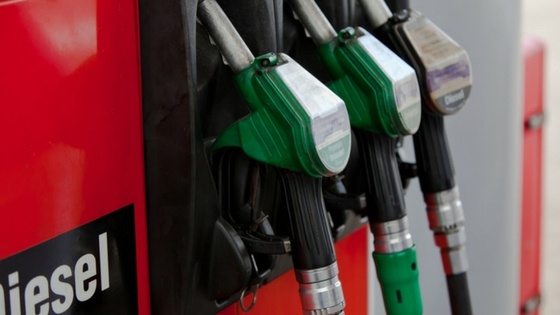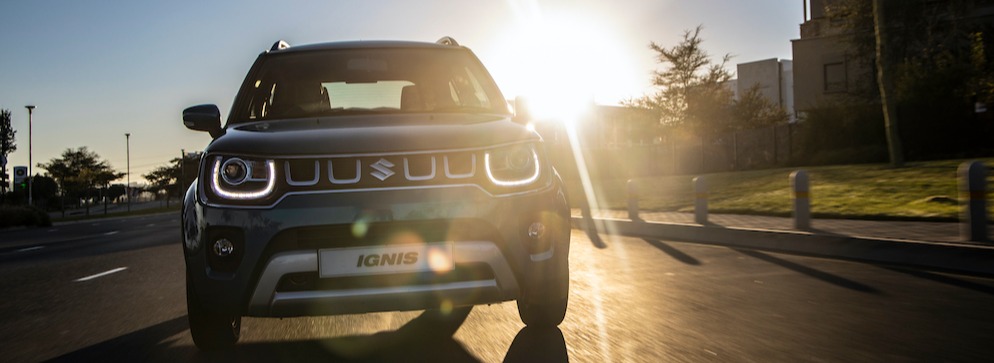.png?width=1074&name=Dzire%202020%20model%20(1).png) Got your eye on a brand new set of wheels? Here’s the answers to some commonly asked questions our dealers receive from first-time car buyers.
Got your eye on a brand new set of wheels? Here’s the answers to some commonly asked questions our dealers receive from first-time car buyers.
We spoke to Paula Cardoso, Finance & Insurance (F&I) advisor at Ipop Suzuki Johannesburg South, to find out some of the most common questions or complaints she receives from first-time buyers navigating the process of applying for car finance.
Frequently asked questions when buying a new car in South Africa

Disclaimer: While we have taken every precaution to ensure that the following information is accurate, this blog post does not constitute financial advice and we strongly recommend consulting the F&I at your dealership to assist you in getting the best deal on your car finance.
How do I know if I should get a balloon payment?
The only time we recommend a balloon payment is if you cannot afford the monthly repayment fee.
To find out the pros and cons of choosing a balloon payment (or residual value), read our article, Should I choose a balloon payment?
Which factors determine the car finance deal I get offered?
Customers generally want the best possible rate from their financial provider. There are, however, several factors which affect your rate including and previous finance, the stability of your income, tertiary education (like diplomas or degrees) and your affordability which is determined by assessing your monthly income in comparison to your monthly expenses.
Your interest rate is determined by the term of the loan (the average loan term is 60 months), the amount to be financed and the customer’s credit score (which is affected by the factors mentioned above). A low-risk candidate (with an excellent credit score) will receive a lower interest rate than a high-risk candidate, as the high-risk candidate is deemed more likely to default on repayments.
Read our article, How to improve your credit rating, to help you clean up any blemishes on your credit record so that you can enjoy the full benefit of the lowest possible interest rate on your car finance.
Are there any disclaimers I need to be aware of in my car finance contract?
Contracts are fairly straightforward to understand, so you’re unlikely to fall prey to any complicated legal jargon or fine print. Your F&I will go through the contract with you, before you sign, to help answer any questions you have and ensure that you understand the terms of the contract you’re about to sign.
There, however, are two important things to note
- If you do high mileage then you should avoid a balloon payment.
- If the principal debt (the financed amount) is below R249 999, then you can pay extra on your monthly installments without being penalised. You’re also not penalised if you settle your debt early, as this contract is an intermediary contract. Large contracts, on the other hand, which have a principal debt of R250 000 and over, attract penalties.
Should I compare multiple finance options, from various financial providers, to secure the best interest rate?
Your F&I should offer you various finance options but, at the end of the day, each option is pretty much the same (as the interest rate you’re offered depends primarily on whether you are a low or high risk candidate).
When it comes to making the choice, it all comes down to which finance option suits you and your budget the best.
Should I fix my interest rate?
A fixed interest rate helps you keep your budget stable during fluctuations in our economy. It’s fixed for the full contract period, so whether the prime lending rate goes up or down, the fixed rate will always remain the same. It’s entirely up to you whether you want to fix your interest rate or not - it’s purely for budgeting purposes.
What documents should I have with me to ensure my car finance application is approved?
If you’re a private individual, you’ll need the following documents:
- ID document
- Driver’s Licence
- 3 months of payslips
- 3 months of bank statements (originals stamped by the bank)
- Proof of address (not older than 3 months)
If you’re a business, you’ll need the following documents:
- Company registration papers
- Proof of company address
- 6 months company bank statements (originals stamped by the bank)
- Directors’ ID documents
- Directors’ proof of addresses (not older than 3 months)
What are the most common complaints or frustrations from your clients when applying for car finance?
The most common complaint we receive from clients is the administrative documentation required by legislation. Often people don’t understand why we need things like proof of address, original stamped bank statements and payslips, original ID documents and driver’s licences in order to apply for their car finance.
Which parts of the car contract do people resist or find confusing?
The full outstanding balance, including the interest - people don’t understand how the interest rate works. They can’t understand why the interest rates on vehicle finance are so much higher than bond rates. When they receive their first statement, they often get confused and frustrated.
The reason for this disparity is that car finance has a much shorter loan term and finance amount compared to bond rates, so they should not be compared to the long term rates and finance amount on their home loan.
Want to get the best possible deal on your new car? Download our eBook, Questions to ask your dealer, and take it with you when you visit your dealership, to ensure that you ask all the important questions before signing on the dotted line or download our guide to buying a new car.



